WATCH: Phaphamani Irrigation success story
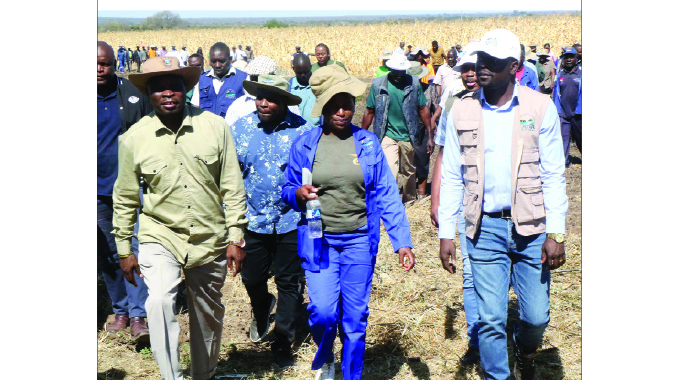
Nqobile Tshili – [email protected]
FROM 2002, Phaphamani Irrigation Scheme in Nyamandlovu, Umguza District in Matabeleland North farmers were struggling to produce due to lack of mechanisation equipment, making them redundant on 30 hectares of land.
The majority of the 72 farmers at the irrigation scheme abandoned the project, leaving only 12 resilient scheme members.
The 12 have become part of a success story which speaks to Government’s rural industrialisation agenda as they are now raking US$6 000 per household per year through their farming venture.

Phaphamani Irrigation Scheme chairman Mr Gershon Dube
Even those who had abandoned the scheme are now working towards re-admission to the productive scheme, which is now under the management of the Agricultural and Rural Development Authority (ARDA).
ARDA provides technical expertise while communities provide labour which they are paid for on a monthly basis before getting a dividend at the end of each harvesting season.
At Phaphamani Irrigation Scheme, they are set to harvest maize and sunflower crop and have already planted wheat and proceeds from these activities will enable each household to take home US$6 000.
The farmers also have a separate monthly income from the scheme.

The Agricultural Rural Development Authority (Arda)
The transformation of the farming project started in 2015 when Government provided mechanized equipment through the More Food for Africa Programme, in a partnership with Brazil’s government.
Government yesterday commissioned Phaphamani Irrigation Scheme which is expected to produce five tonnes per hectare in the maize crop that is yet to be harvested.
ARDA chief executive officer Mr Tinotenda Mhiko said while the aim is for farmers to each earn above US$4 000 per annum by 2030, Phaphamani Irrigation Scheme farmers have achieved the targets.
“This is surely another milestone and revolutionary of the V-2030 accelerator model. It is a model that has been rolled out across the irrigation schemes in the country. So, on this scheme, we are expecting a dividend of US$1 780 per household from the summer crops and for the wheat we are expecting close to US$4000,” said Mr Mhiko.
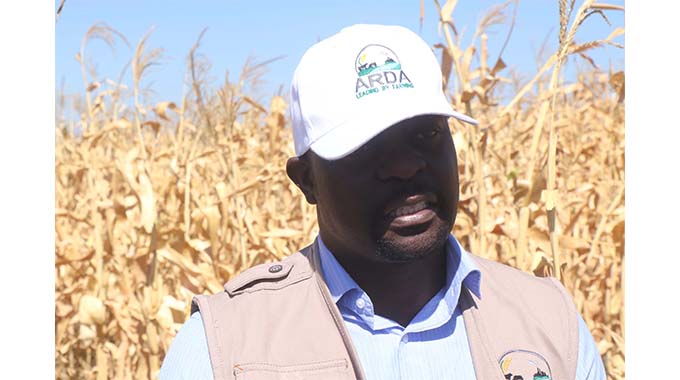
Arda CEO Tinotenda Mhiko
“This scheme has already achieved Vision 2030 because they have already passed the minimum income per capita of US$4 000 per household per year because they are at US$6 000 per year and this is a clear demonstration of the V-2030 model which was deployed in a whole of Government approach.”
He said Government’s thrust of rural industrialisation is being achieved through successful farming ventures.
Mr Mhiko said agriculture is the backbone for attainment of an upper middle-income economy by 2030 for rural communities.
“It means that they have accelerated the attainment of Vision 2030 for these households through agricultural development. We are seeing a clear testimony of unlocking the nexus between agricultural development, rural industrialisation and rural development because we believe that agriculture powers rural industrialisation which can cause rural development,” said Mr Mhiko.
He added that Phaphamani Irrigation Scheme members have moved from subsistence farming to surplus and commercial oriented farming, creating opportunities for value addition and beneficiation which catalyses rural industrialisation and spurs rural development.
Mr Mhiko said this has been achieved through collaboration of various Government departments including the support from the Ministry of Lands, Agriculture, Fisheries, Water and Rural Development, which has provided irrigation infrastructure.
The ministry director of agriculture Engineering, Mechanization, and Soil Conservation, Engineer Martin Munyati said the transformation of the scheme is part of Government’s initiative to modernise the agriculture sector.
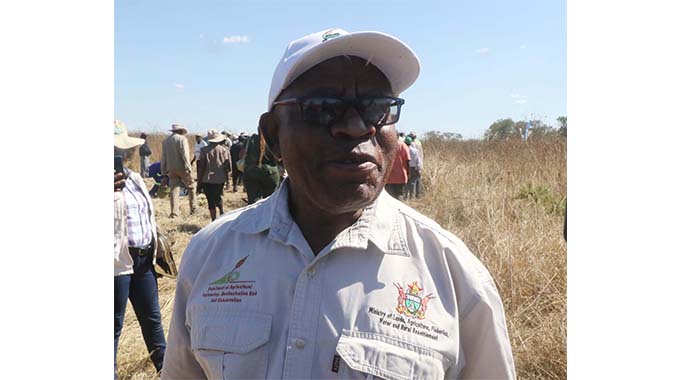
Eng Martin Munyati
“For this particular we had the More Food for Africa Programme which came in 2015, it was a government to government scheme with the government of Brazil supporting agricultural mechanisation in the form of equipment. So, for this particular scheme, they received two tractors, a plough and a fertiliser spreader. This initiative has gone a long in trying to mechanize the irrigation schemes in order to bring in the necessary efficiencies that are required for production,” said Eng Munyati.
The ministry director for Irrigation Development, Engineer Bezzel Chitsungo said it is pleasing that irrigation equipment has been put to good use.
He said the irrigation the country is cushioned from climate change guaranteeing productivity in farms.
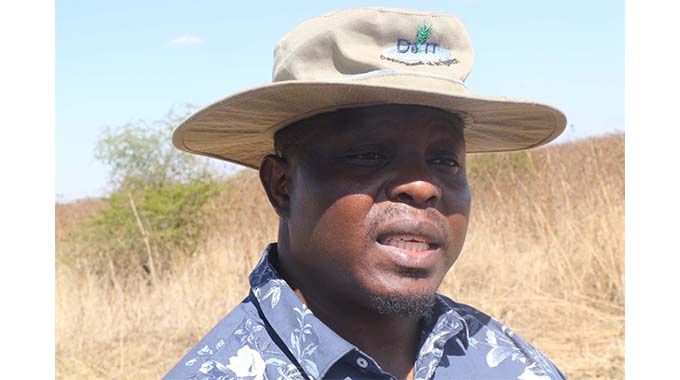
Engineer Bezzel Chitsungo
“The machinery that has been put in has now been put to good use. We now have assured supply of water resources that are necessary for crop production and from this scheme, we have installed a 30-hectare Centre Pivot and a hose reel that can irrigate 20 hectares in a year,” he said.
“That is the machinery that we have empowered the community with. In light of the impending threats that are motivated by climate change, this intervention is a key thing as the nation seeks to achieve food self-sufficiency. With irrigation we are assured that once farmers put investment in crop production, they will get assured yields.”
The scheme’s chairman Mr Gershom Dube said depending on rain fed agriculture made their farming efforts futile but now they are profitable which has transformed their lives.
He said they had almost given up on farming before Government’s intervention.
“We never expected one day that we would appreciate farming the way we do today. It has become easier to work. We want to thank His Excellency President Mnangagwa, especially his focus that no one should be left behind. We are now able to self-sustain. We are no longer begging from anyone. I can’t approach my neighbour asking for money to pay school fees, our diet has improved. We have improved infrastructure in our homes, we have drilled boreholes in our homes because of farming,” he said.
Matabeleland North Provincial Affairs and Devolution Minister Richard Moyo said the transformation of Phaphamani Irrigation Scheme speaks to Government’s commitment to capacitating farmers and ensuring the country attains food security.

Minister Richard Moyo
“As a province we want to thank President Mnangagwa for coming up with programmes considering that we are in a dry region where rain-fed agriculture does not do well. It is not the only one, there are more than 14 that are like this in the province,” said Minister Moyo.
“We have Bubi-Lupane Irrigation Scheme, we have Redwood, there are so many and we have Bulawayo Kraal in Binga where they are busy preparing for wheat farming. So we want to express gratitude to the Government because such programmes guarantee food security.”
He said it was pleasing to learn that scheme members were already making money that changes their lives.
—Fr@nqotshili


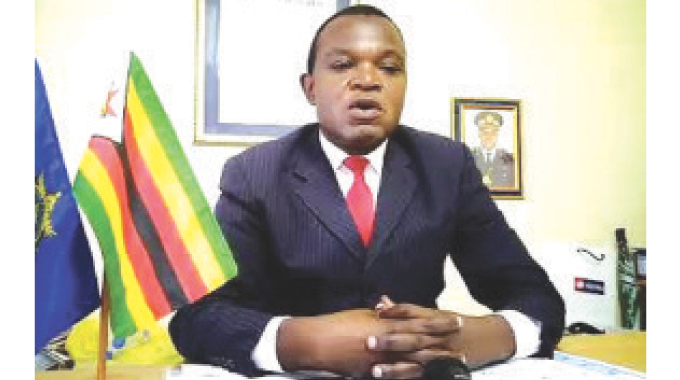


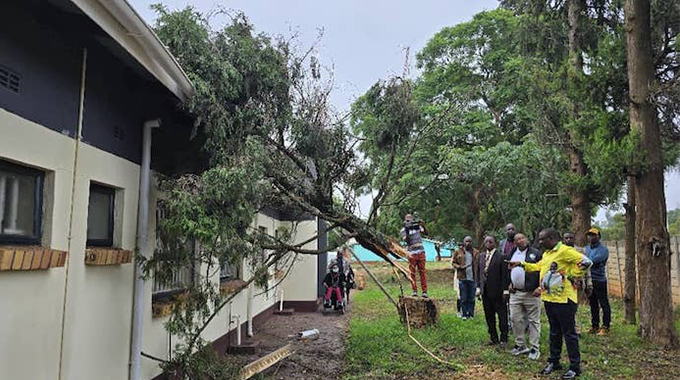






Comments